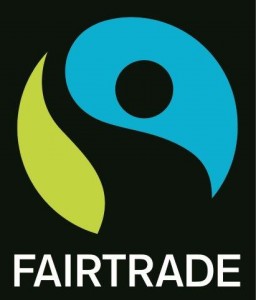
More evidence that low-calorie sweeteners are bad for your health
Studies show that artificial sweeteners can raise the risk of hypertension, metabolic syndrome, type 2 diabetes and heart disease, including stroke.

It’s Fairtrade Fortnight – an annual celebration of fairer business and a good time to consider just how influential your choices as a consumer can be!
Most of us are fed up with irresponsible business practices and with the greed that puts so much wealth in the hands of so very few.
But creating a fairer world doesn’t begin and end with politician’s expenses or banker’s bonuses or even the Occupy movement. A fairer world must meet the needs of the most vulnerable – people we never see but who nevertheless make our lives a little better with the products they grow and supply.
The Fairtrade mark can now be found on a range of products including coffee, banana, sugar, tea, jeans, jewellery, footballs and flowers.
At heart the concept of Fairtrade is a strategy for alleviating poverty in some of the poorest places on earth. And it works. In the UK, for example, Fairtrade sales in the UK have grown by 12% to reach an estimated retail value of £1.3 billion. That’s no mean feat in these tough economic times.
How it all began
Fairtrade began in 1988, when a fall in coffee prices triggered an economic crisis for developing nations. The Netherlands was the first country to promote Fairtrade, selling “fairtrade” Mexican coffee in Dutch supermarkets under an initiative by the Dutch development agency. It was branded Max Havelaar, after a fictional character who opposed the exploitation of workers in Dutch colonies.
Following a rise in popularity of the fairtrade concept in the late 80’s and early 90’s, a number of other labelling systems were launched across Europe, the USA, Japan and Canada.
In order to unite these labelling initiatives under one umbrella and establish worldwide standards and certification, Fairtrade Labelling Organizations International (FLO) was established in Bonn, Germany was set up in 1997.
The Fairtrade Foundation is the UK representative of FLO. It was established in 2002 by CAFOD, Christian Aid, Oxfam, Traidcraft and the World Development Movement. These founding organisations were later joined by Britain’s largest women’s organisation, the Women’s Institute.
A fair deal
Fairtrade ensures better prices, decent working conditions, local sustainability, and fair terms of trade for farmers and workers in the developing world.
By requiring companies to pay sustainable prices (which must never fall lower than the market price), Fairtrade addresses the injustices of conventional trade, which traditionally discriminates against the poorest, weakest producers. It enables them to improve their position and have more control over their lives.
Organisations carrying this logo practice fair trade principles from the ground up. Choosing products that bear this mark, is in some ways a more reliable way of shopping ethically since it supports organisations that are committed to changing the way goods are produced.
Fairtrade is not the same as organic, though many of the small farmers in the scheme do use traditional, and therefore organic and sustainable techniques.

Please subscribe me to your newsletter mailing list. I have read the
privacy statement